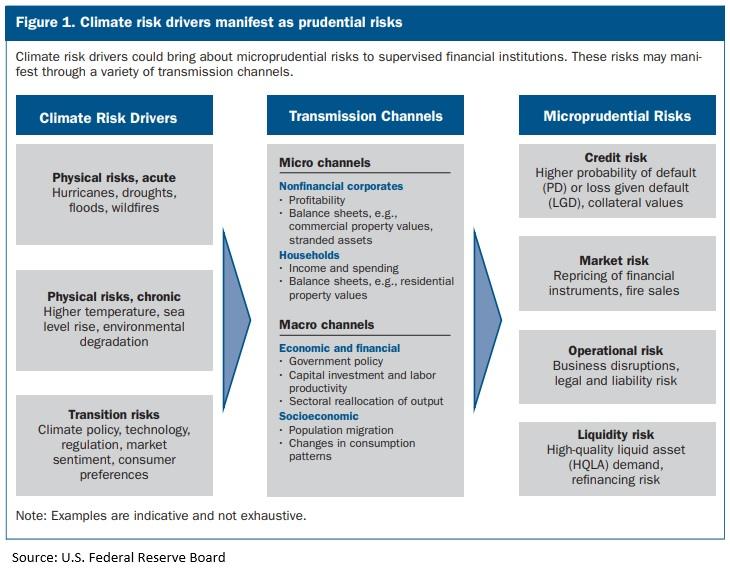Fed Launches Climate Risk Exercise For Big Banks
The U.S. Federal Reserve Board announced released details and instructions for its inaugural climate scenario analysis exercise for the six largest U.S. banks, designed to assess the banks’ climate-related risk management practices and their resilience to a range of climate outcomes. Results from the exercise are to be submitted by the banks by the end of July.

The banks participating in the climate scenario exercise include Bank of America, Citigroup, Goldman Sachs, JPMorgan Chase, Morgan Stanley, and Wells Fargo.
According to the Fed, the goals of the exercise include generating a deeper understanding of climate risk management practices at the banks, and building capacity to identify, measure, monitor, and manage climate-related financial risks.
The banks will explore the effects of two climate scenarios on specific areas of their loan portfolios. The scenarios, based on those provided by the Network of Central Banks and Supervisors for Greening the Financial System (NGFS), including one based on current policies and one based on reaching net zero greenhouse gas emissions.

The exercise will be composed of two separate modules, each exploring the key climate risk areas of physical risk and transition risk. The physical risk module will examine the impact of potential future shocks arising from harm to people and property from acute climate-related events such as hurricanes, wildfires, floods, and chronic events such as higher temperatures and rising sea levels on the banks’ real estate portfolios. The transition risk module will assess the impact on corporate loans and commercial real estate portfolios from the transition to a lower carbon economy, including shifts in policy, consumer and business sentiment, or technologies.
The Fed’s exercise comes as central bankers globally, including in the UK and EU, are increasing the use of stress tests to assess the resilience of banking and financial systems to climate-related risks, although the Fed stated that its exercise is “distinct and separate from bank stress tests,” and will not have capital consequences.
The Fed has taken a less active role in addressing climate change than some of its central bank peers. Earlier this month in a speech at a central bank conference in Sweden, Federal Reserve Chair Jerome Powell stressed that the Fed will not become a “climate policymaker,” and that use of its policy and supervisory tools to achieve environmental or climate-based goals would be inappropriate under its federal mandate.
Powell added, however, that the Fed’s responsibilities for bank supervision do extend to requiring banks to understand and manage the financial risks of climate change.
In a statement accompanying the release of the exercise details, Fed Vice Chair for Supervision Michael Barr reiterated the Fed’s position, stating:
“The Fed has narrow, but important, responsibilities regarding climate-related financial risks – to ensure that banks understand and manage their material risks, including the financial risks from climate change. The exercise we are launching today will advance the ability of supervisors and banks to analyze and manage emerging climate-related financial risks.”
More By This Author:
Honda, LG Launch $4 Billion JV To Build EV Batteries In U.S.Verizon Surpasses 3GW Projected Renewable Energy Capacity With New Large-Scale Purchase Deals
UK Bans Single-Use Plastic Plates And Cutlery



